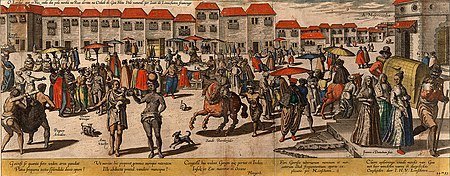Portuguese Colonialism in India | Civil Services Exam
Discovery of sea route to India and arrival of Portuguese: Although European travelers had been coming to India many centuries before Vasco-da-Gama's arrival in India in the 15th century, but when Vasco-da-Gama passed through the Cape of Good Hope on May 17, 1498

Discovery of Sea Route to India and Arrival of Portuguese
Although European travelers had been coming to India many centuries before Vasco-da-Gama's arrival in the 15th century, it was Vasco-da-Gama who passed through the Cape of Good Hope on May 17, 1498, marking a significant event in Indian history.
The Portuguese Invasion
When the Portuguese reached Calicut in 1800, their arrival had a profound impact on Indian history. Unlike the Americas in the West, where European powers initiated direct colonization, in the East, it took time. However, their superior sea power, technology, and weapons enabled them to quickly establish control over sea trade.
Portuguese Intentions
The Portuguese initially claimed that they had come to India for business, but their hidden agenda was to propagate Christianity and monopolize trade in the Eastern seas by eliminating their Arab competitors. The Indian Ocean trade was then dominated by Arabs, but within 15 years, the Portuguese destroyed many Arab ships and asserted control.
Situation in India at the Time of Portuguese Arrival
The timing of the Portuguese arrival favored their ambitions in eastern trade. North India, except for Gujarat, was fragmented among small powers. The Bahmani Empire in the Deccan had disintegrated into smaller kingdoms, none of which had significant naval power. Arab traders could not match the organization and unity of the Portuguese, who rapidly became dominant in sea trade.
Motivations for Coming to India
In the 15th century, the Portuguese envied the wealth of Venice, a kingdom in Italy, which had profited from the East-West trade dominated by Muslim middlemen. The Portuguese sought to bypass these middlemen by finding a sea route to India. Prince Henry the Navigator played a key role in this endeavor. Eventually, Vasco-da-Gama reached India in 1498, paving the way for further Portuguese expeditions.

The Battle of Cochin (1504)
Vasco-da-Gama arrived in Calicut in 1502 with a large fleet. His relations with the local ruler, Zamorin, were hostile. In their quest to monopolize eastern sea trade, the Portuguese engaged in violent confrontations with Arab traders. They used military power to establish trading posts, known as "Fitoria," across Asia. These bases helped the Portuguese maintain naval supremacy in the Indian Ocean.
Beginning of Portuguese Empire in India
The formal establishment of the Portuguese Empire in India began in 1505 when the Portuguese king appointed a governor in India. Francisco de Almeida, the first governor, was tasked with securing Portuguese interests and disrupting Muslim trade. He built forts along the coast and successfully battled the Egyptian and Gujarati navies, ensuring Portuguese dominance.
Strategy of Expansion
Alfonso de Albuquerque succeeded Almeida and played a key role in expanding the Portuguese Empire in the East. He captured Goa in 1510, a strategically significant port, and established bases at key entrances to the Indian Ocean, such as Malacca and Hormuz. His policies of intermarriage with locals and strategic alliances further strengthened Portuguese power.

Portuguese Trade Dominance
The Portuguese established dominance over trade routes in the Indian Ocean and beyond. They set up factories in various regions, including Chaul, Diu, Bassein, and Mangalore. To maintain their control over sea trade, the Portuguese imposed the “cartage system,” which required Indian ships to obtain licenses from the Viceroy of Goa to avoid being attacked.
Decline of Portuguese Dominance
The Portuguese remained a major force in Asian trade until the early 16th century. Their trade with India focused on spices such as black pepper, ginger, and cinnamon, which were exported from the Malabar coast. However, their dominance began to wane as other European powers, particularly the Dutch and the British, began to challenge their monopoly.
Thus, the Portuguese not only profited from the spice trade but also played a crucial role in shaping the dynamics of Indian and Asian maritime trade during their reign.
What's Your Reaction?

















